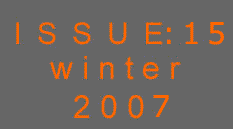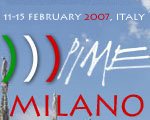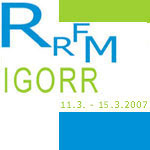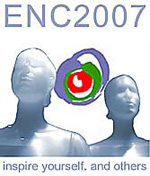
EU Energy Initiative Recognises Role of Nuclear
Energy in European Energy Future
Wednesday, 10 January 2007
On 10 January 2007, the European Commission (EC)
presented an “energy package”, which consists of a
Communication entitled An Energy Policy for Europe, communications
and reports on coal, biofuels, nuclear (the so-called PINC); a
competition enquiry into electricity and gas markets and a green
paper on climate change . It will lead to the adoption of an Action
Plan on a common European Energy Policy by the European Council
next March. The communication on energy policy and the PINC (Nuclear
Illustrative Programme) clearly recognise the key contribution
that nuclear energy makes to the achievement of the EU's security
of supply, climate change and competitiveness goals. It also highlights
how nuclear energy is and will remain a key component of the EU's
energy mix.
You can find these documents in the Energy section
of the Commission website at:
ec.europa.eu/energy/energy_policy/index_en.htm
and the EC press releases on the issue at: www.europa.eu/press_room/presspacks/energy/index_en.htm
The EC also published a new Eurobarometer on
Energy Technologies. The survey reveals that European citizens
now rank nuclear energy as likely to be the third “most
used” energy source in 30 years time - after solar and wind.
You can also read the press release on the strategic
energy review and the latest FORATOM position papers related to
this issue at: (link to press
release and to PINC,
Green
Paper, Climate
Change position papers )
The Communication clearly recognises the central
role that nuclear energy will play in promoting low-carbon energy
and competitiveness. According to the provisional copy of the
Communication: “…nuclear energy is one of the largest
sources of carbon dioxide (CO2)free energy in Europe
. Nuclear power is less vulnerable to fuel price changes than
coal or gas-fired generation, as uranium represents a limited
part of the total cost of generating nuclear electricity and is
based on sources which are sufficient for many decades and widely
distributed around the globe.” The Communication also refers
to nuclear energy as: “one of the cheapest sources of low
carbon energy that is presently produced in the EU and has relatively
low costs. The next generation of nuclear reactors should reduce
these costs further.” On the key subject of climate change
and Kyoto commitments, the EC is equally unequivocal: “Reinforcing
nuclear power generation could also represent one option for reducing
CO2 emissions and play a major role in addressing global
climate change. This could also feature as an important consideration
when discussing future emissions trading schemes.”
Therefore the PINC encourages member states to
make new investments in nuclear power if they choose this energy
option as a way to secure energy supply, competitive energy prices
and fight climate change : “ A significant number of NPPs
are indeed due to close down within the next 20 years. Construction
of new plants and/or extension of the current operating lifetimes
of existing reactors will be required if the Member States choose
to maintain the current share of nuclear power in the overall
energy mix.” Although it is up to every Member State to
choose whether it want to use nuclear energy, individual national
decisions “can have an impact on other States in terms of
trade flows of electricity, the EU's overall dependence on imported
fossil fuels and CO2 emissions but also on competitiveness
and the environment.”
As part of the process of developing the Action
Plan, continued stakeholder consultation is essential and, with
this in mind, Members of the European Parliament and the nuclear
industry have suggested to the EC the establishment of a European
Nuclear Forum along the same lines as the Florence, Madrid
and Berlin fora that were established for electricity, gas and
oil respectively.
|





